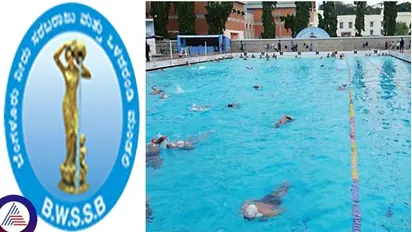Bengaluru water crisis: BWSSB issues stern warning, penalty for using Cauvery water in swimming pools

Synopsis
The Bengaluru Water Supply and Sewerage Board (BWSSB) has banned the use of potable water for filling swimming pools and non-essential purposes within the city limits, citing alarming groundwater depletion. Penalties for violators include fines and legal action. The measure aims to conserve water amid rising concerns over scarcity.
In response to the alarming decline in groundwater levels across Bengaluru, the Bengaluru Water Supply and Sewerage Board (BWSSB) has taken a decisive step to conserve precious water resources. The BWSSB has issued a stern directive, invoking sections 33 and 34 of the Bengaluru Water Supply and Sewerage Board Act 1964. This directive unequivocally prohibits the use of potable water for filling swimming pools within the city limits of the city.
With approximately 1.40 crore residents relying on water sourced from the Cauvery River, the city is facing a pressing need to ensure the responsible use of this vital resource. As temperatures soar and rainfall remains scarce, concerns over water scarcity have reached a critical point. Reports indicate that some residents have been utilizing drinking water meant for household use in swimming pools and other non-essential purposes, exacerbating the strain on available water sources.
Bengaluru water crisis: IT employees appeal govt to mandate work from home until monsoon
Furthermore, recognizing the importance of conserving water for essential needs, the BWSSB has extended the prohibition to include activities such as house cleaning, vehicle washing, and construction work. These measures are aimed at promoting responsible water usage and preventing unnecessary wastage.
Following the enforcement of these regulations, stringent penalties have been put in place for violators. As outlined in Section 109 of the Jalmandal Act, 1964, individuals found in breach of the prohibition face a fine of Rs. 5,000 for the first offence. Subsequent violations will incur a higher penalty of Rs. 5,500, along with legal action and potential police complaints against the owners of the offending swimming pools.
Stay updated with the Breaking News Today and Latest News from across India and around the world. Get real-time updates, in-depth analysis, and comprehensive coverage of India News, World News, Indian Defence News, Kerala News, and Karnataka News. From politics to current affairs, follow every major story as it unfolds. Download the Asianet News Official App from the Android Play Store and iPhone App Store for accurate and timely news updates anytime, anywhere.